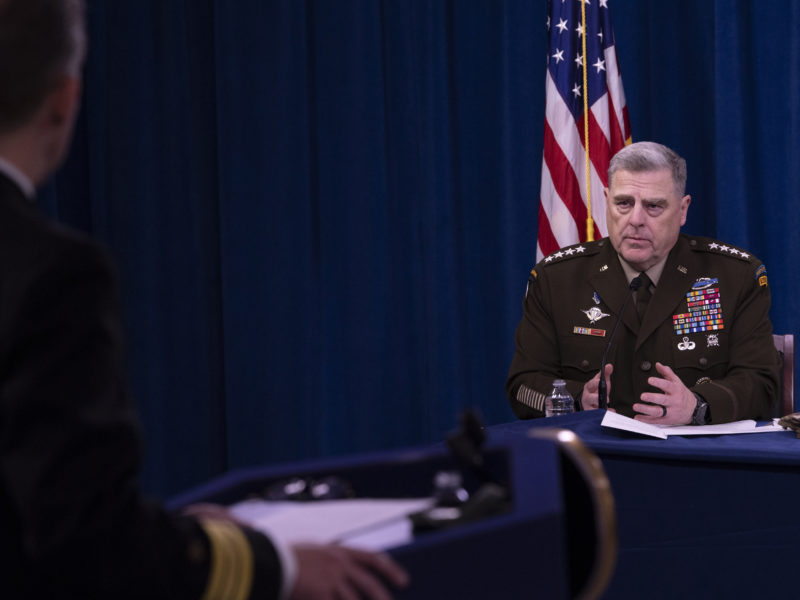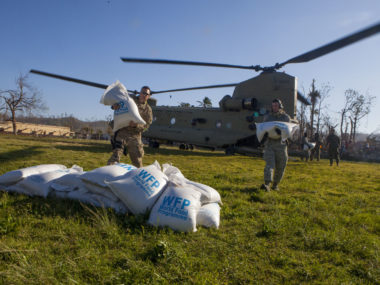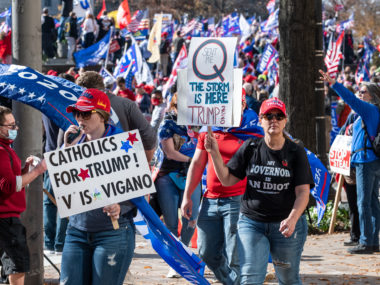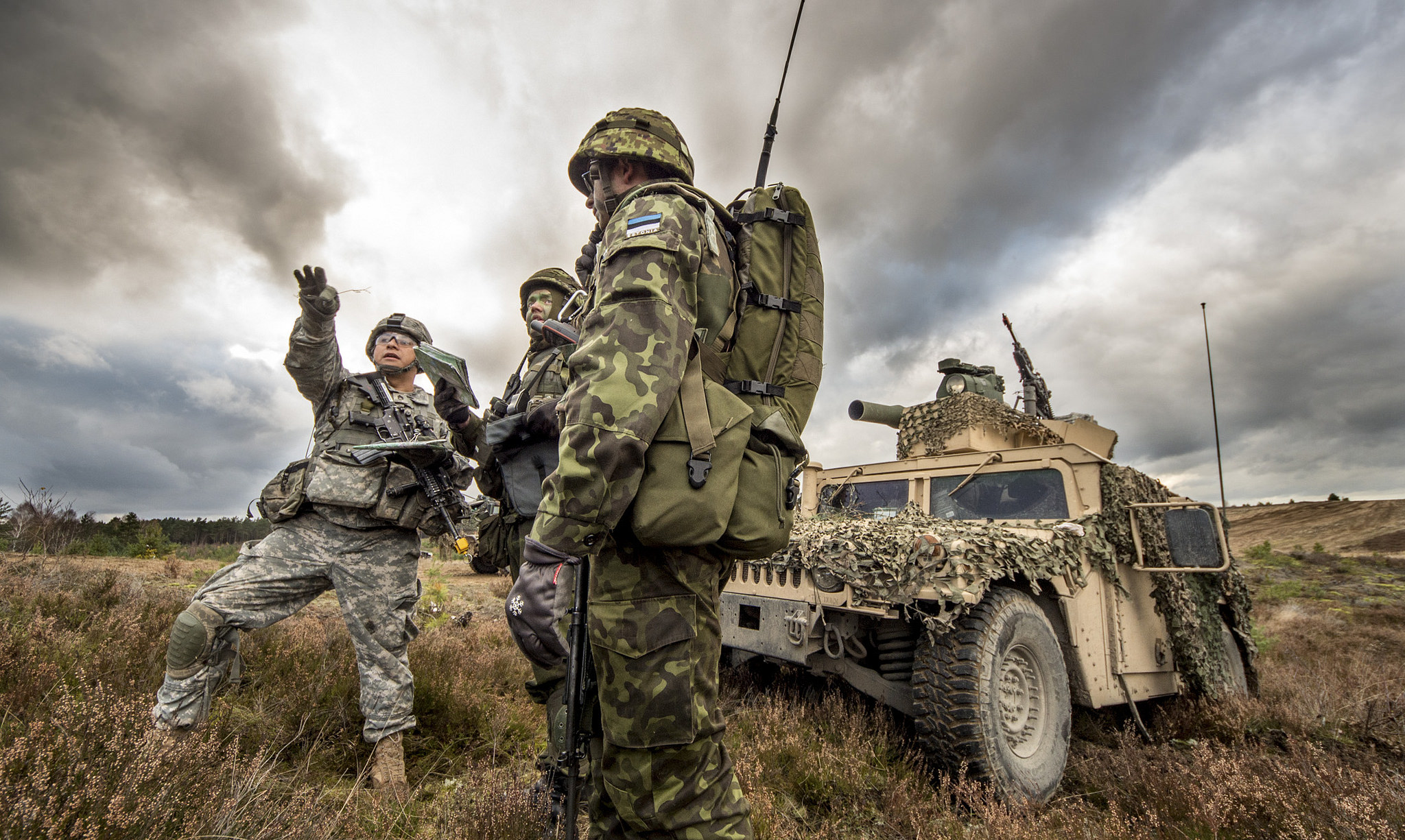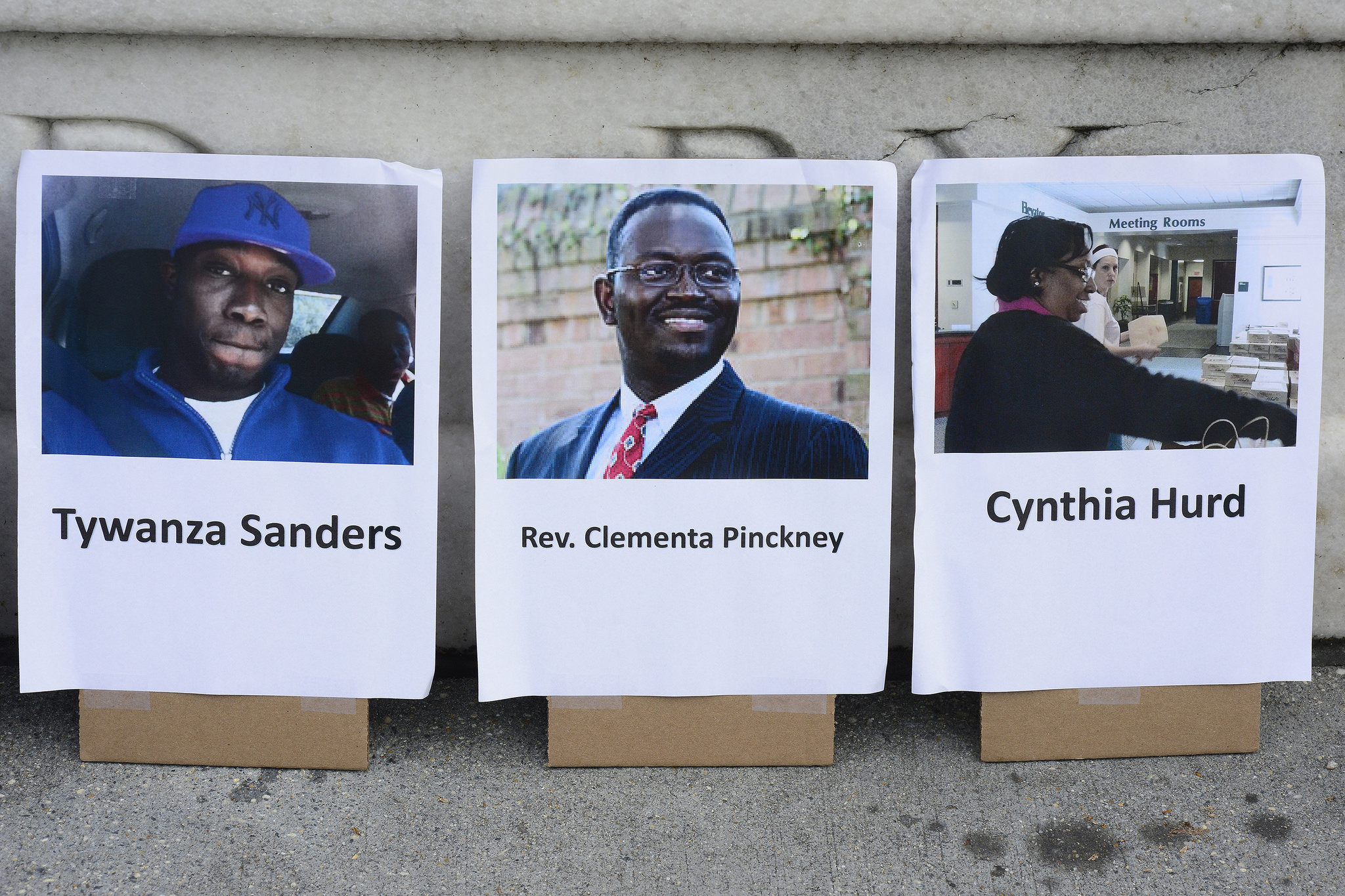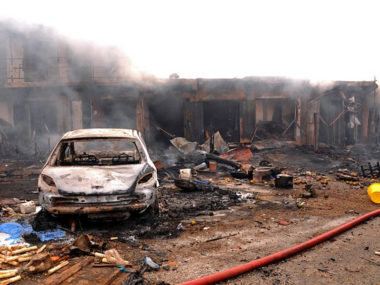Guest post by Jessica Maves Braithwaite, Jennifer Earl, and Kirssa Cline Ryckman
Since President Trump threatened to deploy federal troops to control protests on June 1, and protestors were met by National Guard troops with questionable legal mandate along with civilian police forces, several prominent current and former military leaders issued surprising and, in some cases, unprecedented statements challenging the President’s efforts. Some military officials were clearly worried.
Should they now breathe a sigh of relief over a crisis averted? Maybe not. Military leaders need to remain alert in order to protect the nonpartisan nature of the American military and the very essence of American democracy.
The health of American democracy is a continuing source of worry. The United States has long sought to play the role of promoter and preserver of democracy abroad, for better or worse, but democracy is in decline in the United States and around the world. Democratic ideals are especially precarious at the moment, as we observe continued calls for more militarized measures to crackdown on dissent, and even to discard the long-standing separation between the military and domestic police in the United States.
Accused by some of sounding like a dictator, Trump has primarily engaged in authoritarian rhetoric. Though rhetoric can be consequential in itself, authoritarian action is worse. Threatening or using military force against citizens protesting the government would likely be viewed as a dictatorial move in many other regions of the world. Reactions of former Intelligence and Defense officials suggest the optics are not different at home.
That threat doesn’t end because the troops are back at their bases.
On June 9, we saw a meltdown in the Georgia election. On June 10, Trump’s campaign demanded an apology from CNN for reporting on a poll showing Trump losing to Biden by double digits. The United States’ democratic institutions are weak, its norms appear weaker, and the military may again be called on by Trump to quell dissent in the future.
Military action against protesters would likely continue to escalate dissent. The consequences of repressing protest are really hard to predict, but from academic research we know that some responses are like throwing gas on a fire.
In particular, crackdowns can inflame tensions further and bring more people into the streets. Scholars have argued heightened repression leads to sympathy and support for protests. Repression can backfire and result in even more dissent, particularly in the longer term. As academic research has shown, protest movements are better able to bring about the change they seek as they gain momentum through increased participation. That risk of (potentially major) changes to the status quo is likely concerning to many people currently in positions of power, potentially leading to even more escalation of repression.
And even if US military troops are not on the scene, their weapons are. The increased use of military equipment and tactics by local law enforcement agencies against protesters is increasing police violence and harming public perceptions of police. The military must confront what supplying arms to local police departments means for US democracy when peaceful protestors exercising First Amendment rights come under attack.
Military leaders need to worry about their troops, with some National Guard personnel questioning their service post-DC deployment. Generals should be concerned that if called upon again to police protests, there is the potential for soldiers to defect or stand aside because they don’t want to repress their fellow citizens through what they view as “unlawful or unethical orders.” When confronting protests around the world, military defections and “loyalty shifts” in favor of the protestors’ plight are particularly likely when those in the streets are widely supported and practicing nonviolence, as is the case here.
To be sure, as Tom Cotton showed, Trump’s call for a show of force has some supporters—although this might be less popular than they hoped. And, Trump did eventually allow troops and the Guard to leave DC. But nonviolent transitions from democracy often begin with only some support.
Hopefully, the US military looks out at the sea of mobilization and demand that the nation do better. The military swore an oath to defend the US Constitution, including the principles, aspirations, and ideals at its heart. It is an essential collective right to speak truth to power, whether addressing British monarchy, a President who has admired acts of repression and strongman tactics, or systemic racism and police brutality. Grassroots American democracy is alive and well. US generals need to remain vigilant to ensure formal institutions—and a nonpartisan military—don’t degenerate further.
Jessica Maves Braithwaite is an Assistant Professor of Government and Public Policy at the University of Arizona. Jennifer Earl is a Professor of Sociology at the University of Arizona and an internationally recognized expert on social movements and repression. Kirssa Cline Ryckman is an Assistant Professor of Government and Public Policy at the University of Arizona.

